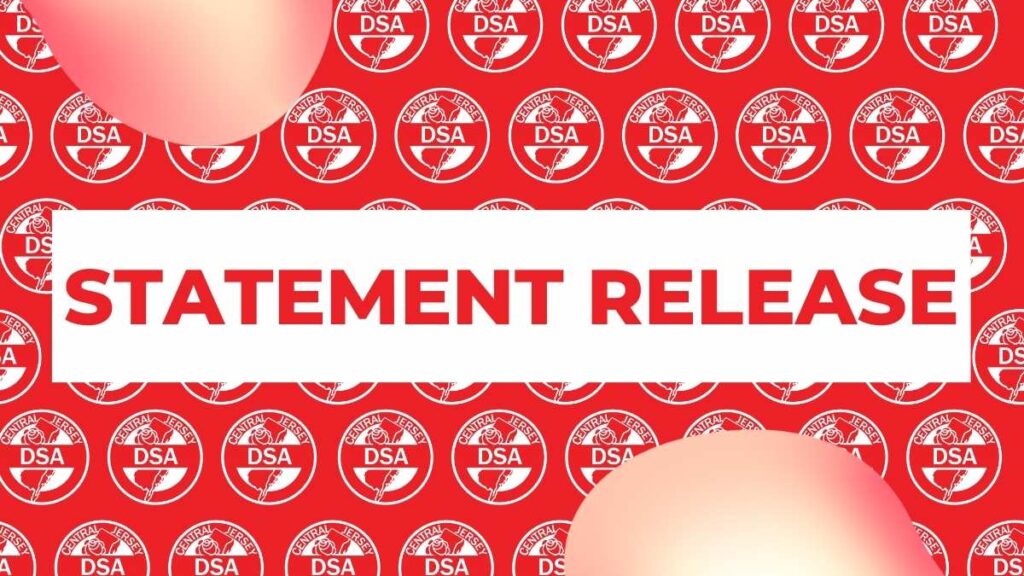“Ten thousand times has the labor movement stumbled and fallen and bruised itself, and risen again; been seized by the throat and choked and clubbed into insensibility; enjoined by courts, assaulted by thugs, charged by the militia, shot down by regulars, traduced by the press, frowned upon by public opinion, deceived by politicians, threatened by priests, repudiated by renegades, preyed upon by grafters, infested by spies, deserted by cowards, betrayed by traitors, bled by leeches, and sold out by leaders, but notwithstanding all this, and all these, it is today the most vital and potential power this planet has ever known, and its historic mission of emancipating the workers of the world from the thraldom of the ages is as certain of ultimate realization as is the setting of the sun.”
– Eugene V. Debs
On June 1st 2023, the Supreme Court of the United States ruled 8-1 that companies may sue labor unions for certain damages incurred while striking. This case came to the courts after Seattle area cement truck drivers represented by Teamsters Local 174 went on strike, leaving the concrete in their trucks undelivered. Eroding long-standing protections, this ruling opens the door to legal harassment of unions by vindictive employers. For the supposedly unacceptable transgression of refusing to work for substandard wages and benefits, the minoritarian and undemocratic courts have issued the latest in a series of attacks on the working class.
In her article “Unions Can Still Strike—Don’t Let the Supreme Court Tell You Otherwise”, Labor Notes editor Alexandra Bradbury cautions against catastrophizing, clarifying that this ruling leaves the right to strike largely intact. It is certainly true that this court decision did not overturn the right of workers to strike – but our takeaway should not be “it could’ve been worse,” it should be “so long as the capitalist class controls society through the institutions of the state, they will continue to attack the rights of workers.” Even after almost a century of largely working within the capitalist legislative framework, subordinating class politics in favor of lobbying the capitalist parties, and enduring a shrinking scope of rights and protections, the state still views our unions as illegitimate encroachments on the property rights of capitalists.
Class struggle is in an upsurge in the United States. Responding to a global pandemic, inflation, and instability, workers have shown a fighting spirit and a willingness to organize in large and powerful corporations like Amazon and Starbucks, and workers in unions such as the Teamsters and UAW have pushed back against concessionary and undemocratic leadership by ousting the old guard and electing militant reformers. We’ve seen this locally with the first strike in Rutgers’ history this spring, ongoing strikes by Starbucks workers across the state, and picket lines halting production on movies as the WGA East strike continues. These strikes show organized workers can apply enough pressure to create real change in their workplaces and their industries–if they’re able to maintain unity in the face of the possibility of retribution.
Millions of workers remain unorganized, and the currents of business unionism and labor liberalism still cling to a strategy of appealing to the Democratic Party for protection and empty promises. It’s clear, after looking back at the decades of decline in the labor movement under neoliberalism, that this is not viable – the capitalist state is structured to uphold the power and long term interests of the capitalist class, and it will intervene to discipline working class movements that threaten power and profit. We see this through financialization, globalization, climate change, environmental degradation, police suppression, the endless expansion of imperialist wars, and the billions in state subsidies that prop up monopoly finance and industrial capital.
How should the socialist wing of the labor movement respond? We reject the idea that class struggle should be delegated solely to a small layer of labor “professionals” in leadership positions. We believe in building and transforming unions into industry-wide organizations that are under mass participatory rank-and-file control. We believe that the repression of the labor movement under capitalist society necessarily means that workers need class-independent political organization, in order to fight for the interests of the entire international working class, beyond only our immediate economic needs. We believe that the political aim of the working class movement should not be to simply appeal to the capitalist state, but to overcome the capitalist state, administered through an ossified and minoritarian political system, in order to emancipate ourselves and build a democratic socialist society.
We’re responding with renewed vigor behind the Strike Ready Campaign, which you can learn more about at our upcoming biweekly Labor Committee Meeting on Sunday. Join us to learn more about how Central NJ DSA will stand with the Teamsters at UPS if they strike this summer. We’re sending five delegates to Chicago for the DSA National Convention, where we’ll work with socialists across the country to build solidarity with the labor movement and prioritize pro-working class actions like nationalizing the railroads. And we’re marching on picket lines to support the WGA East as they push back against millionaire actors like Kim Kardashian and corrupt billionaire corporations like Apple to demand fair wages and human ingenuity over AI algorithms that dehumanize art and entertainment. Join us today as we continue to condemn the Supreme Court of oligarchy and reaction, and we continue the fight for democracy, socialism, and a better world.
In Solidarity, Central New Jersey DSA

